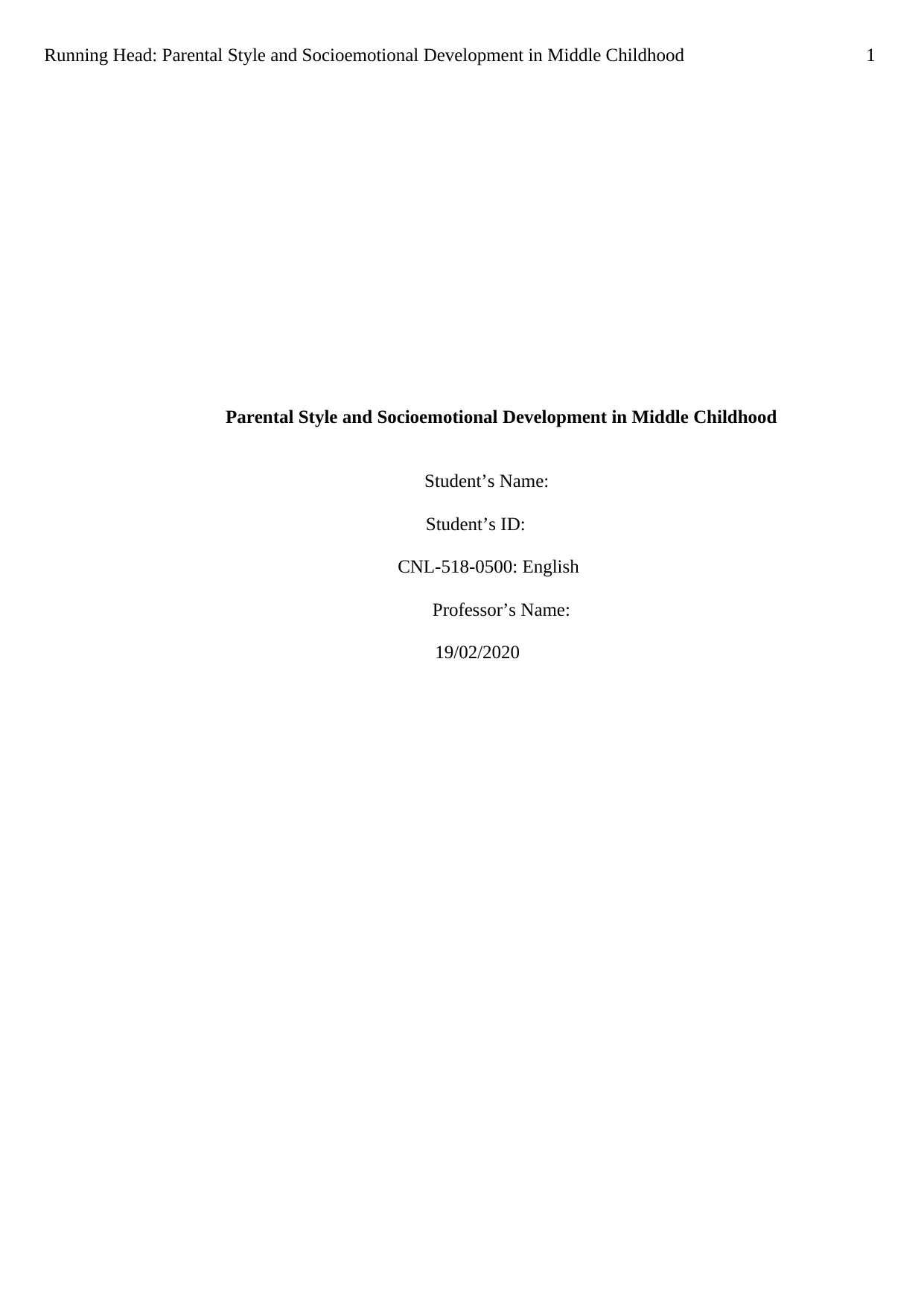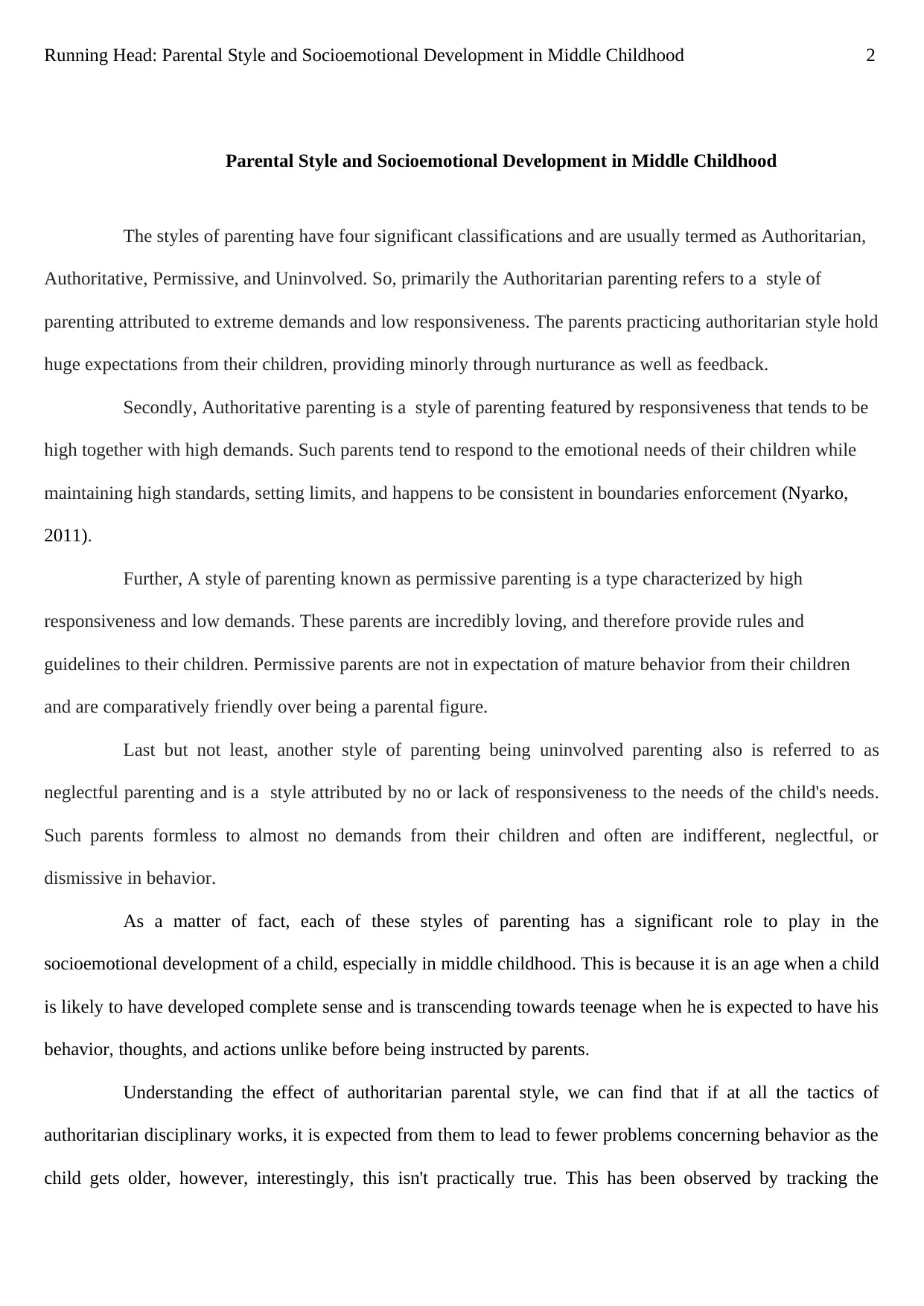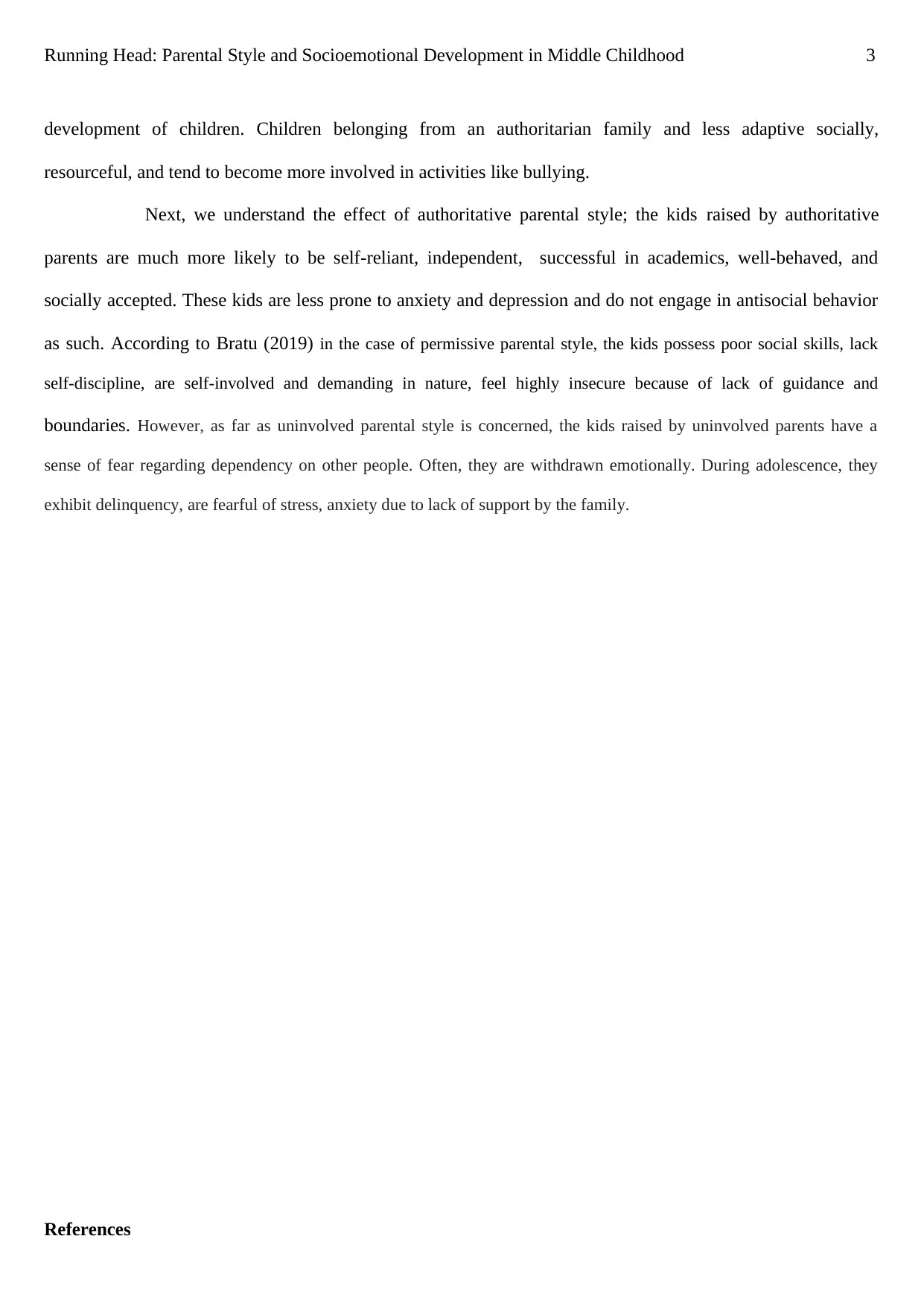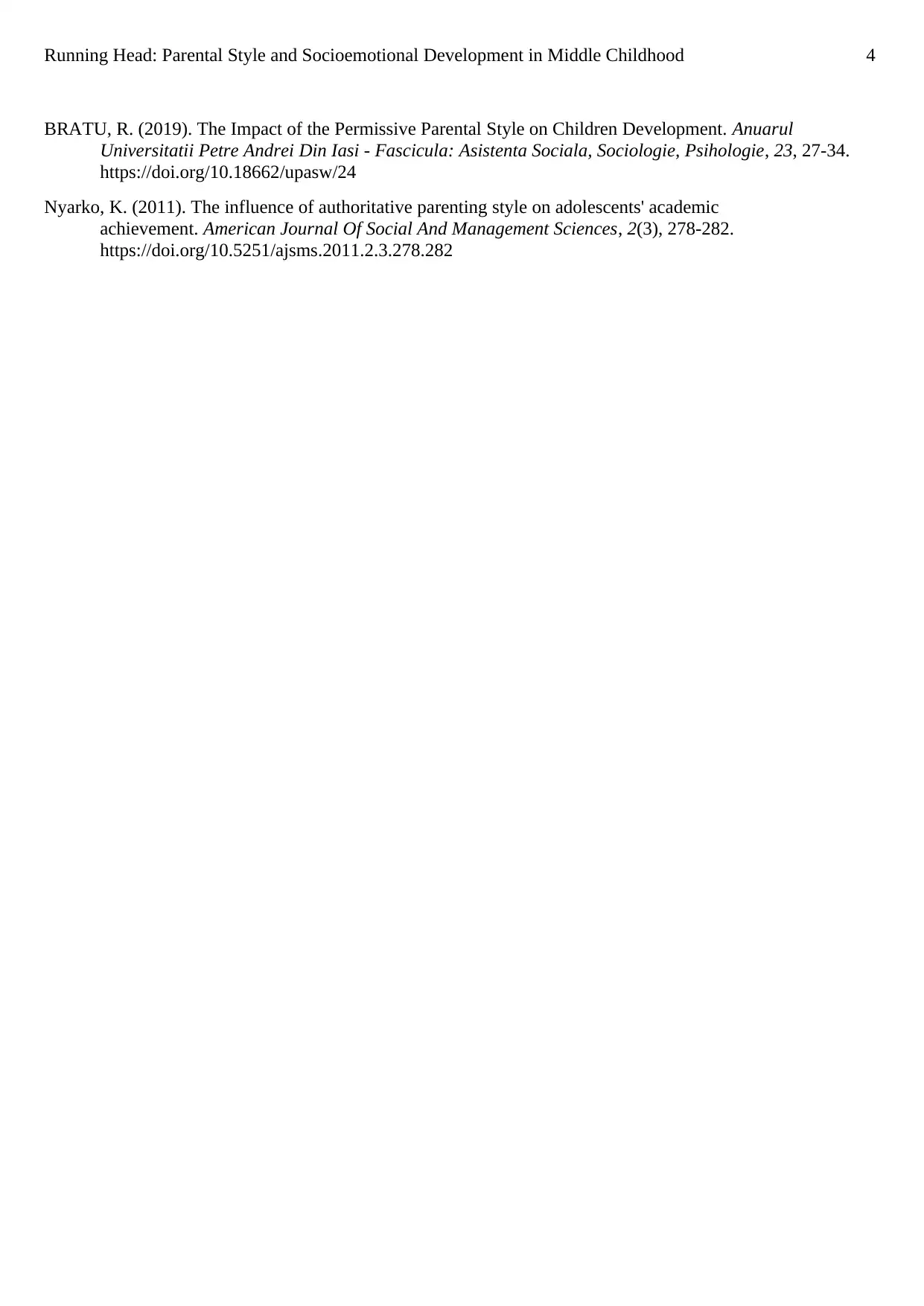CNL-518: Essay on Parental Styles and Child Development, 2020
VerifiedAdded on 2022/08/08
|4
|676
|327
Essay
AI Summary
This essay examines the four primary parenting styles: authoritarian, authoritative, permissive, and uninvolved, and their respective impacts on a child's socioemotional development during middle childhood. The essay defines each style, highlighting the key characteristics of each approach to child-rearing. It then delves into the effects of each style on a 10-year-old child, exploring how these parenting methods influence behaviors, social skills, academic success, and the child's overall well-being, referencing research findings to support the analysis. The essay emphasizes that authoritative parenting is often associated with the most positive outcomes, while authoritarian, permissive, and uninvolved styles can lead to various challenges in a child's socioemotional growth. The paper also references supporting research by Bratu (2019) and Nyarko (2011).
1 out of 4











![[object Object]](/_next/static/media/star-bottom.7253800d.svg)